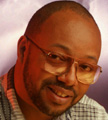
Lenoard Pitts, Jr.
http://www.jewishworldreview.com -- APPARENTLY, everybody's worried about George Bush except you.
"You" in the second-person plural sense of the word, that is. You, the American electorate. Media folks have pronounced themselves worried, as have civil libertarians and members of Congress from both parties. But you? You can barely stifle a yawn.
The thing that worries everybody else, in a nutshell? Call it the end of open government. Consider by way of iconic example Bush's recent executive order making it easier to restrict public access to the papers of former presidents.
And then, of course, there's the war on terrorism. Suddenly, we hear that the president wants captured terrorists to be judged by secret military tribunals and that authorities are detaining hundreds of individuals with alleged connections to terrorists without revealing who they are or what they're suspected of doing. Add to that the fact that the government has reserved the right to wiretap conversations between suspected terrorists and their attorneys and it all suggests a troubling predilection toward secrecy and an indifference toward the protection of civil liberties.
Small wonder official watchdogs of the public good have raised alarms. And yet, according to a new ABC News/Washington Post poll, most Americans are untroubled by the seeming erosion of their civil rights.
Given that most Americans can't even name those rights, feel free to take the poll numbers for what they're worth. I take them as proof that folks are shaken and scared, desperate to feel safe again by any means necessary.
Not that I don't understand - and share - the willingness to cut the president some slack. We are at war, and war is a different animal. It demands - or sometimes, just allows - expediencies that would be unthinkable in peacetime. Facing the gravest crisis in the nation's history, Abraham Lincoln arrested members of the Maryland Legislature so it could not vote to secede. Acting in the spirit of open racism that marked his era, Franklin Roosevelt sent thousands of Americans of Japanese heritage to detention centers.
In terms of constitutionality, the things George Bush has done fall short of those two extremes. Yes, I'm troubled by the abrogation of attorney-client privilege and by the notion of secret detentions. On the other hand, I'm less troubled by the idea of military tribunals (does anyone really think some al-Qaida terrorist captured in the mountains of Afghanistan should be read his rights and given Johnnie Cochran's phone number?)
You may, as I do, defend one policy and condemn another. I'm not here to pick that fight. No, my concern is the picture that begins to emerge when those policies are taken together. It's a picture of autocracy. A picture that ought to raise caution flags, even for those of us who are willing to cut the president some slack.
George Bush faces a historical opportunity here. Once upon a time not so very long ago, we prided ourselves on suspicion and cynicism. But suddenly, people trust their government again. Perhaps more to the point, they need to trust it in a way they have not since the days when father knew best. And because they trust it, they give it leeway.
That's why Bush enjoys the sort of political elbow room his father and Bill Clinton only dreamed of. But as he plots how to use that room, the president would do well to remember how we became suspicious and conspiracy-obsessed in the first place. It was because the government abused the trust we gave it. It lied about Watergate, lied about Vietnam, lied about the domestic threat of communism. And did so, not to further the national interest, but to promote the careers and protect the backsides of a series of slimy men. The government lied so prolifically that mistrusting it became a self-defensive reflex. We learned to question everything and believe nothing.
The events of Sept. 11 largely changed that. But the president would do well to err on the side of caution as he abridges liberties in the prosecution of war. He should understand the picture that begins to emerge and recognize that it would be a mistake to take poll numbers as carte blanche approval for secrets and lies. Leeway is not limitless. That slack he's extended goes but so far. The question is, how far?
If he's smart, George Bush will never find
Comment on JWR contributor Leonard Pitts, Jr.'s column by clicking here.
12/03/01: Martin Luther Ka-CHING!
11/27/01: Beauty reflects an ugly truth
11/22/01: Another reason to be thankful
11/19/01: If only they knew our names
11/12/01: Watching a 'dying' man live
08/01/01: Should a man be put in jail for what he's thinking?
07/27/01: It's your responsibility to invade their privacy
07/20/01: Is optimism for fools?
07/17/01: Everybody should have a white man

